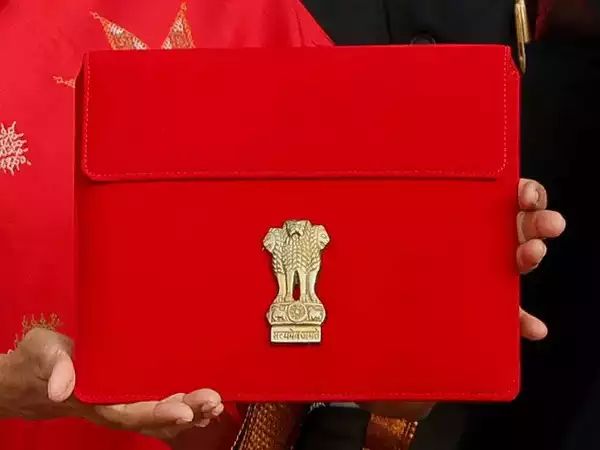The interim budget for the fiscal year 2024-25 is scheduled for February 1, 2024, as will be presented by Finance Minister Nirmala Sitharaman. The full and final budget is expected to be tabled in July, post-2024 Lok Sabha Elections. Between January 31 to February 9, a brief Budget session, the last of the 17th Lok Sabha will be held.
While many of us are expecting some indispensable leaps in several areas including technology, innovation, manufacturing, and R&D, FM Sitharaman while speaking at an event by the Confederation of Indian Industry (CII) ruled out the possibility of any “spectacular” announcements. This cements the fact that fiscal discipline will take precedence over populist spending, thus following the premise of a conventional interim budget model.
It will be interesting to see the stance that this budget will adopt, especially in expediting growth in the Power and Energy sector with lead incentivization for green hydrogen. The oil and gas sector has expectations of steady reforms for City Gas Distribution players, while the power sector is keen on noticing some bold initiatives to encourage the adoption of renewable energy. As per EY’s 2024 Budget expectations report, the government may extend the concessional 15 per cent income tax rate for corporations, for them to set up manufacturing units by one year till March 31, 2025, to attract foreign investments. Experts also predict that the government could unveil an expanded third phase of the incentive scheme for electric vehicles and that the budget will cater to further strengthening of the startup ecosystem in the country.
Overall, India is expected to maintain the growth momentum into FY25, and the upcoming union budget can indeed be a solid step towards realizing the country’s ambition of becoming the third-largest economy.
Let us take a look at what some of the industry experts’ expectations are from this year’s interim budget, as shared with ELE Times.
Industry Speaks
Saurabh Marda, Managing Director and Co-Founder at Freyr Energy –

“The rooftop solar sector in India is rapidly expanding, with an impressive CAGR of 15%. To further accelerate adoption of solar, Ministry of New and Renewable Energy (MNRE) has decided to increase the Central Financial Assistance (CFA) by 23%. One major challenge that many customers face, however, is the high upfront investment. To promote wider adoption of solar energy, we hope that the 2024 union budget will encourage banks to offer affordable financing options for solar solutions. By providing low-interest loans, these financial institutions can significantly contribute to India’s progress towards sustainable energy”.

Prem Kumar Vislawath, CEO and Founder at Marut Drones –
“The Central government has been on the right path in paving the way for large scale embrace of drones in India with its decision to provide 15,000 agricultural drones free of cost to rural women under the Drone Didi initiative. The aviation sector is bound to see incredible changes in the coming years. In budget 2024, we are hoping to see ease of regulations for start-ups as well as consumers, along with easy financing for drones for commercial purposes. A 100 percent subsidy to farmers on drone training certification program through Skill India would support the drone ecosystem of the country. GST waiver on drone, allied products, software, training, and license could be an excellent step towards that future. We are hoping to see ease of regulations for start-ups as well as consumers. For instance, PLI scheme extension for component and manufacturers would be a great incentive for start-ups. Easy financing for drones for commercial purposes can go a long way in making them affordable to all sections of the society. Fine tuning policies and quicker clearances will help the drone industry achieve its true potential of making India a drone hub by 2030”.
Kumar Gaurav, Co-Founder of Cashaa-

“As we eagerly anticipate the Union Budget of 2024, Cashaa is hopeful for transformative measures that will shape the future of the Indian crypto sector. Our primary expectation is a reduction in the flat tax rate from 30%, aligning crypto gains with other asset classes like debt and equity. We also advocate for a significant drop in the high TDS rate from 1% to approximately 0.01%, aiming to rekindle trading volumes crucial for a vibrant market. A decisive and supportive regulatory framework is pivotal, as it will not only encourage innovation but also attract vital investments to fuel the growth of the crypto sector in India. While our optimism runs high, we remain mindful of the interim nature of this budget, preceding the 2024 general elections”.
Pankaj Jha, Country Head & Director of Sales at MAXHUB India-

“As the country continues to evolve, it is imperative for the government to channel its efforts towards the digitalization of education, aligning with the visionary National Education Policy 2020. In addition, expanding the scope of smart city projects to include more cities will undoubtedly contribute to our nation’s growth. I strongly advocate for the simplification of custom duties and incentives for ‘Make in India’ initiatives, with a special focus on facilitating contract manufacturing. Furthermore, providing tax exemptions on smart classrooms for private education players is an essential step in fostering innovation and accessibility. These measures collectively pave the way for a technologically advanced and educationally empowered India”.
Mr. Rajesh Gupta, Founder & Director at Recyclekaro-
“The upcoming budget holds a pivotal role in steering India towards a sustainable future by fostering the growth of battery recycling. The circular economy’s cornerstone, battery recycling, addresses mineral scarcity and reinforces our supply chains, paving the way for self-sufficiency in battery materials. While regulations like the Electronics Waste Management Rule and Batteries Management Rule have strengthened the recycling industry, persistent challenges call for solutions. To further empower this sector, streamlined recycling policies and incentives for pioneering waste management solutions are imperative.
The rapidly growing adoption of electric vehicles is a catalyst for the EV battery recycling industry. Initiatives such as FAME, PLI, and other incentives should be amplified to fuel this momentum. A tailored PLI scheme dedicated to lithium-ion battery recycling will be a game-changer, amplifying the sector’s growth while advancing India’s sustainability goals. As we approach the budget, investing in these strategic measures will not only invigorate the recycling industry but also cement India’s position as a global leader in sustainable practices.”
Dr Venkat Mattela, Founder & CEO at Ceremorphic-

“The semiconductor industry’s tenacity and dedication to innovation, indicate bright development possibilities in the rapidly changing technological world as the 2024 budget draws near. And it’s absolutely critical to give priority to a few joint government-organization projects in order to promote innovation throughout India’s semiconductor industry.
With green energy and sustainability taking centre stage in worldwide efforts to cut carbon emissions, policies like the National Green Hydrogen Mission will help move the economy towards low carbon intensity and lessen dependency on imported fossil fuels for ecosystem-wide sustainable growth. Furthermore, the renewable energy industry has enormous potential for cooperation with semiconductor fabrication plants by offering assistance in establishing ESG norms for the manufacturing sector by including sustainable waste management practices and recycling water techniques, among other things. Speaking of core teach, we can anticipate a heightened emphasis on AI integration with research and development in various sectors, particularly in high-tech manufacturing like semiconductors, to ensure sustained progress.
At the grassroots level, such as in high schools and colleges across the nation, the government must also continue to support skill development initiatives like the Pradhan Mantri Kaushal Vikas Yojana 4.0 and Skill India Digital platform, with appropriate curricula to prepare the workforce for Industry 4.0 and beyond. And last but not the least, formation of industry think-tanks, in collaboration with the government, and support for semiconductor design startups will help provide a comprehensive outlook for promoting innovation in the space of AI, hence bolstering the semiconductor sector”.

Vivek Tyagi, Managing Director at Analog Devices Inc. India-
“As we approach the Union Budget 2024, we at Analog Devices Inc are hopeful for a forward-looking fiscal roadmap that steers the nation towards technological prowess and sustainable growth. We believe the upcoming budget will play a crucial role in shaping India’s economic development, particularly in emerging sectors like semiconductor, e-mobility, green hydrogen, and renewable energy. Recent commitments observed at the Vibrant Gujarat Global Summit 2024 underscore the industry’s collective dedication to Indian Government’s vision of a ‘Developed India @2047.’
In this dynamic landscape, we encourage policies that bolster indigenous semiconductor manufacturing ecosystem. The announcements by global players to invest in Gujarat highlight the sector’s potential and the need for a conducive policy environment. We believe that the budget should be a catalyst for nurturing innovation, research, and skill development, particularly in frontier technologies like artificial intelligence, 5G/6G networks and renewable energy.
As the world embraces the integration of 5G technologies, AI-enabled solutions and sustainable practices, we look to the budget to provide a strategic framework that not only navigates current challenges but also sets the stage for India’s emergence as a global technology and innovation hub. In essence, the forthcoming budget represents a pivotal opportunity for India to fortify its position on the global stage, and Analog Devices Inc remains committed to contributing to this transformative journey.”
Sandeep Trehan, President, Marketing & Business Development at THINK Gas-

“We hope that the budget’s potential initiatives for city gas distribution (CGD) players holds promise for accelerating the adoption of natural gas across the country. We expect the central government to coordinate with the state governments and bring about policy initiatives such as reduction in VAT or bringing natural gas under the GST ambit. We also expect the government to make usage of natural gas mandatory for areas where the infrastructure is ready and gas is flowing. All this will help achieve the government’s target of India becoming a gas-based economy and the share improving to 15% by 2030.”
Hyder Khan, CEO at Godawari Motors-

“I eagerly anticipate the upcoming budget with optimism and a fervent hope for increased support towards the electric mobility sector. The extension and enhancement of the FAME (Faster Adoption and Manufacturing of Hybrid and Electric Vehicles) scheme would be instrumental in propelling India towards a sustainable and eco-friendly future. Substantial subsidies for electric vehicles and related infrastructure would not only incentivize consumers but also bolster the growth of our industry.
These measures will not only promote cleaner transportation but also stimulate innovation and job creation. I look forward to a budget that recognizes the pivotal role electric mobility plays in achieving environmental goals and economic development, and I trust that the government will continue to foster a conducive ecosystem for the electric vehicle industry to thrive.”
Raman Bhatia, Founder & Managing Director, Servotech Power Systems Ltd-

The automotive industry anxiously awaits insights into the GST landscape, particularly for entry-level two-wheelers. Expectations center around potential FAME 3 schemes and a revision of GST rates for electric two-wheelers. Calls for a uniform 5% GST on all EV spare parts, aligning with the 5% GST on vehicles, echo the industry’s aspiration for a more equitable tax structure. Advocacy for innovation-centric initiatives, coupled with capacity-building incentives, is paramount for widespread EV adoption. The recommendation to lower the GST rate on batteries from 18% to 5% aligns battery swapping and subscription services with EVs, representing a crucial step forward”.
Firstly, we expect the government to continue offering incentives and subsidies for manufacturing and purchasing EVs. These measures effectively drive demand and lower upfront costs. Extending these incentives and reducing import duties on EV components can make electric vehicles more affordable for everyone. Additionally, a critical focus should be on establishing a widespread charging infrastructure network nationwide. Insufficient charging stations are a concern for potential EV buyers. Allocating budget funds for strategically locating charging stations on highways, in cities, and residential areas is essential.
Furthermore, the government should prioritize research and development in the EV sector. Continued investment in advanced technologies, like battery technology and energy storage solutions, is crucial for long-term growth and sustainability. Provisions in the budget supporting innovation and collaboration between industry players and research institutions would be beneficial.
In conclusion, the potential of the EV industry in India is significant, and the upcoming budget can play a pivotal role in realizing this potential. Through incentives, developing charging infrastructure, and investing in research and development, the government can further stimulate the sector’s growth. Delta is committed to contributing to the EV industry’s development and eagerly anticipates the budget announcement”.
Shubham Vishvakarma, Co-Founder and Chief of Process Engineering at Metastable Materials
“As we anticipate the 2024 budget announcement, we hope for a forward-looking budget that reflects India’s commitment to sustainability and technology advancement. A large volume of India’s end-of-life Lithium-ion batteries is exported globally for recycling or just processed as an intermediate black mass and then exported. Hence, massive R&D investments are required, particularly to create strong competencies and lab testing facilities for the proper end-of-life Lithium-ion battery recycling. This not only contributes to responsible environmentalism but also nurtures a talented pool of individuals.
Another area, where we are hopeful for is the Production-Linked Incentive (PLI) and it’s extension to battery recycling. This would also be a strategic approach as by expanding the range of the scheme beyond just the Advanced Chemistry Cell manufacturing, we open up the opportunity to capture the entire value chain. This extension will incentivize the setting up of homegrown recycling firms instead of shipping away the dead batteries.
We also recommend that the recycling of Lithium-ion batteries be incorporated into the Carbon Credit Trading Scheme. This inclusion, in particular for negative-value battery chemistries feasibility will provide substantial support to India’s position in the carbon credit markets and also demonstrates our continued dedication to sustainable solutions.”
Manideep Katepalli, Founder at BikeWo –

“Despite last year’s commendable 33% surge in EV registrations, our industry encounters persistent challenges. Chief among these hurdles is the imperative need for robust charging infrastructure, pivotal in inspiring confidence among potential buyers and propelling the widespread adoption of electric vehicles (EVs) as a sustainable mode of transportation.
Another barrier remains the relatively higher initial cost of EVs, often deterring consumers. However, the promise of life tax subsidies for electric vehicles and the availability of accessible EV financing options hold immense potential to mitigate this challenge.
The integration of EV infrastructure into Priority Sector Lending (PSL) is poised to bolster credit flow into the sector by mandating financial institutions to provide support, thus promising a significant boon. A supportive regulatory framework coupled with financial incentives aimed at fostering research and development within the EV sector stands as an indispensable pillar. These measures not only drive innovation but also attract investments, creating an environment conducive to widespread EV adoption. Ultimately, these strategic initiatives play a pivotal role in establishing an enduringly sustainable and eco-friendly transportation ecosystem”.
Akash Gupta, Co-Founder and CEO, Zypp Electric-

“Prioritizing the electric vehicle (EV) sector is crucial for a sustainable future. First, inclusion in the priority lending scheme will fuel growth by facilitating easier access to capital. To accelerate the adoption of EV-led delivery services, a reduction in GST for EV services from 18% to 5% is imperative. While EV purchases enjoy a 5% GST rate compared to 28% for internal combustion engine (ICE) vehicles, a similar distinction must extend to services. Furthermore, introducing usage-based incentives for EV drivers, in addition to existing FAME buyer incentives, will be a game-changer. Rewarding users based on carbon savings and kilometres driven creates a tangible incentive for sustainable choices.
Addressing the last-mile delivery gap is equally critical. Recognizing last-mile delivery as a distinct sector under logistics policies is essential, given that one-third of shipments fall within this category. Establishing industry standards, supporting gig delivery partners with tailored schemes, and implementing standard operating procedures (SOPs) will enhance efficiency and foster growth in this vital but often overlooked segment of the logistics industry”.

Dinesh Arjun, CEO & Co-Founder at Raptee-
“As the electric vehicle (EV) industry gears up for substantial growth in the coming years, it is imperative for the government to foster a supportive ecosystem. To stimulate investment opportunities, there should be encouragement for potential investors, coupled with essential reductions in GST rates for electric vehicles and charging stations. Additionally, easing the burden on the industry can be achieved through a decrease in import duties on electronic components. The industry is particularly hopeful for a significant GST reduction, aiming to bring it down from 18% to 5% specifically for lithium-ion battery packs and cells, given their pivotal role in the EV sector. A concerted effort in the budget towards enhancing the ease of doing business and facilitating the entry of local players into the market is crucial. Addressing aspects like component localization and ensuring easy access to necessary components will empower Indian companies, both large and small, to develop competitive products at competitive prices, further solidifying the sector’s growth potential”.
Ritesh Kumar, Founder at Cyfirma-

“We would like to see the upcoming budget carry a strong focus on helping businesses overcome the threats of cyberattacks and other digital risks. Indian businesses are adopting digital solutions at an accelerated pace yet their cybersecurity maturity remains low. A budget that supports SMEs and start-ups growth while ensuring their cybersecurity needs are taken care of is much needed in the current AI and digital age. The government’s approach needs to move beyond building compliance frameworks to providing tangible subsidies for cybersecurity protection solutions”.
Yogesh Mudras, Managing Director at Informa Markets India

“The Budget 2024-25 becomes pivotal in steering the nation towards a greener future. With a commitment to boost green energy to 500 GW by 2030, we anticipate sustained attention on the increased allocations for bio-energy, solar, and wind, alongside higher capital expenditure in green hydrogen and battery storage infrastructure.
Recognizing the critical role of energy storage for grid stability, we applaud the proposed policy incentives for Battery Energy Storage Systems (BESS). The recent approval of a scheme targeting 4,000 MWh of BESS projects by 2030-31, with financial support of up to 40% (Rs. 3,760 crore), marks a significant stride toward a resilient energy landscape.
As India targets 170 GW Renewable Energy capacity by March 2025, the Budget is anticipated to extend existing schemes, including the Production Linked Incentive and viability gap funding. Advocating for policies that stimulate green hydrogen demand, reduce GST on crucial components, and increase funding for R&D to create a stable environment for sustainable development. Informa Markets by organizing The Battery Show and REI Expo, continues to provide a crucial platform for industry leaders to collaborate and contribute to the nation’s sustainable energy journey.”
Mukund Kulkarni, Chief Executive Officer at Pepper Advantage India

“As we step into the fiscal year, the digital banking ecosystem in India is poised for significant advancements. This optimism is supported by India’s fintech industry, which is on track to reach a substantial $ 150 billion USD valuation by 2025, making it the third largest globally and exemplifying its rapid growth. Currently, over 2,000 registered FinTech businesses are actively operating in India, a clear testament to the sector’s vibrancy and impact. Banks are now actively embracing collaborations with fintechs, with approximately 70% having already incorporated partnerships in 2023. The integration of APIs into customer journeys during onboarding processes is streamlining operations, providing real-time data, and increasing efficiency. Meanwhile, RBI’s stringent stance on NPAs and new guidelines for digital lending emphasize the commitment to maintaining asset quality.
As we approach the 2024 Budget, expectations are high for an increased focus on Digital Banking, support for Micro, Small, and Medium Enterprises (MSMEs), and initiatives towards enhancing financial inclusion. Guidelines for continuous evaluation of NPA system is also required to maintain the effectiveness in the banking system. In this dynamic environment, Pepper Advantage India stands at the forefront with its cutting-edge AI/ML credit intelligence service, reshaping the financial landscape for smarter decision-making.”









